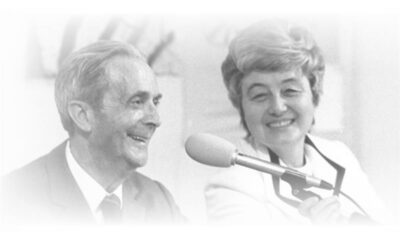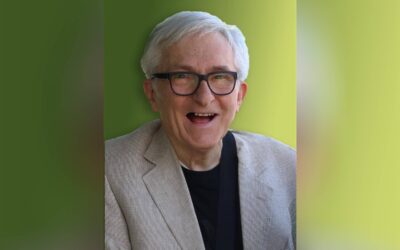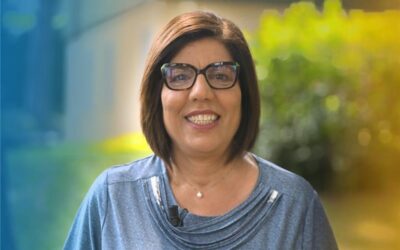 An experience of unity
An experience of unity
“Bombs and missiles continue to sow suffering and hatred. Together with my co-Bishop brothers, I want to hear other voices, bombs and missiles – the spiritual ones, which are stronger and which sow love, concord, understanding and unity.” These are the words of Iraqi Bishop Shlemon Warduni, auxiliary patriarch of Baghdad. Gathered together were 34 Bishops from the Orthodox, Syro-Orthodox, Anglican, and Evangelical-Lutheran Churches as well as from various rites of the Catholic Church. They came from different countries of Europe, the Middle East and the Americas. Their annual meeting, held at the international center of the Focolare Movement in Rocca di Papa (Rome), ended on December 1.
The Meeting was transferred from Istanbul to Rome due to the tragic attacks
Originally, the Meeting was scheduled to take place in Istanbul, and important meetings had been scheduled with Ecumenical Patriarch Bartholomew I, Armenian Apostolic Patriarch Mesrob II, and other religious leaders. However, due to the terrorist attacks, the latest of which took place just three days before the scheduled opening, the Meeting was moved to Rome. “We have been preparing to go to Istanbul for some time now,” says the Evangelical-Lutheran Bishop emeritus of Stockholm, Henrik Svenunggson, “and the Orthodox Churches there had prepared a warm welcome for us. Then all of a sudden everything changed. But we’ve already decided that the venue of the next meeting will certainly be Istanbul.” “Hatred destroys programs and closes roads, but love creates new programs and opens new roads,” remarked the Meeting’s main organizer, Cardinal Miloslav Vlk. “Born out of a great suffering, this meeting has borne abundant fruits,” he said.
Message of the Ecumenical Patriarch of Constantinople
Bartholomew I sent a heartfelt, much-anticipated message, in which he quoted the Pope, reiterating that “humanity needs bridges, not walls.” He went on to say, “We would have wanted to be among you and speak ‘face to face’ with you, for our joy to be full… Unfortunately this chance was denied us all of a sudden, and violently.” He underlined the particular context in which the Meeting was taking place, saying, “During these times which are characterized by lack of stability and security (…) it is a very promising and joyful fact that there are individuals, organizations or movements, such as our beloved Focolare Movement, which have come to the awareness that unity among them and of the world in Christ is the basic element of truth and life. But it is an even more promising fact that they have made the fulfilment of this unity the principal motive of their activity.”
Chiara Lubich’s theme, “The presence of Jesus in the midst and the ‘dialogue of life’” was the central point of the Meeting
Day by day, the Bishops lived the “dialogue of life” and experienced how this could strengthen the various aspects of ecumenism, in particular the “common prayer” during the liturgical celebrations of the different Churches, which disclosed the respective spiritual treasures of the various Christian traditions. There was also the dialogue of charity and of “mutual acceptance.”
The theme of the Meeting was for the bishops an encounter with “Jesus spiritually present in the community where two or more are united in his name, that is, in his love.” Chiara Lubich spoke in-depth about this reality, with her programmatic address, “The presence of Christ in our midst and the ‘dialogue of life’.”
Running through the 60 years of the Movement’s history, the Focolare foundress put into light that since the beginning, the people who had lived through this adventure tended to give rise to living cells of the Mystical Body everywhere. “In this way, blocks of Christians united in the name of Jesus were formed and are being formed in the Catholic Church and in the other Churches, as well as among the different Churches, as we await the possibility, when God wills it, of drawing from the ulterior bond of unity which is the Eucharist.” It is an experience of the “dialogue of life,” “the ‘’people’s’ dialogue,” “for we feel that we are building ‘just one Christian people’ which includes the laity, as well as the men and women religious, deacons, priests, pastors and bishops.”
Jesus in the midst of his own was indeed the great experience of this Meeting.
The promise of Jesus’ presence among his own, contained in Matthew 18,20 also appeared to be the way by which to see our times through the eyes of hope, the key to bringing the Gospel spirit to mankind today – to families and youth, into the fields of politics, mass media, economics, academic and cultural circles – as was proven by the significant number of experiences shared.
To cite one of the comments, Evangelical-Lutheran Bishop Helge Klassohn remarked, “Here I met the Focolare Movement for the first time. I consider this ecumenical environment very important. It is not only a confirmation of our service as bishops, but also a sign that indicates the way the Church should go.”




0 Comments